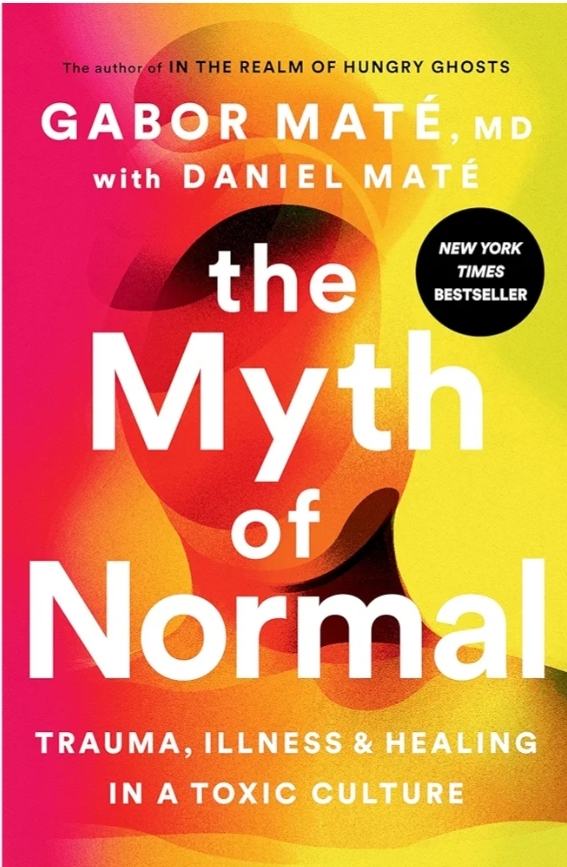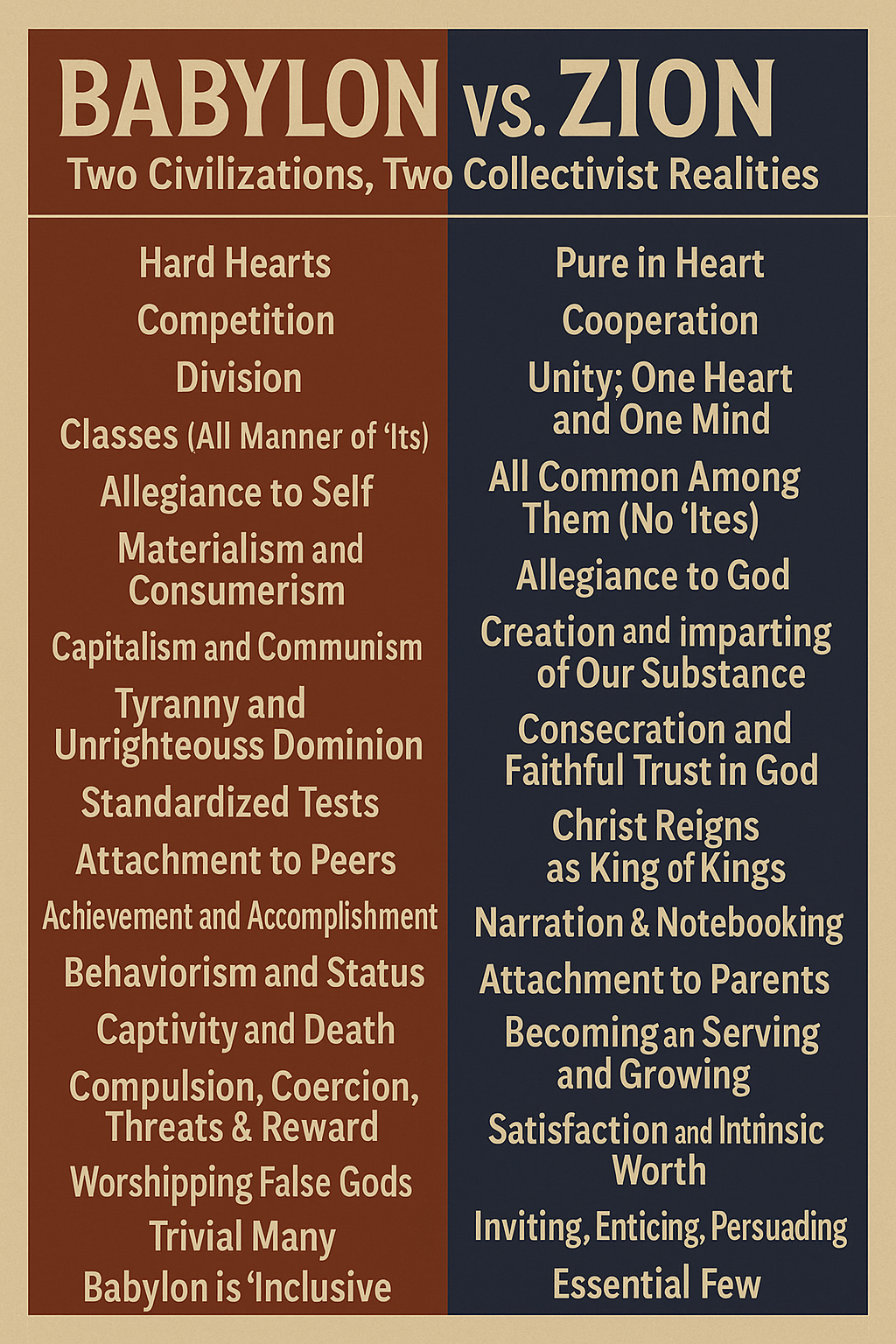“The Myth of Normal: Trauma, Illness, and Healing in a Toxic Culture” by Dr. Gabor Maté (co-authored with his son, Daniel Maté) is a comprehensive examination of the deep-rooted connections between trauma, illness, and modern Western culture. Dr. Maté, a renowned physician and expert on addiction and trauma, challenges conventional notions of what is considered “normal” in society and argues that much of what we perceive as normal is actually harmful to our physical, emotional, and psychological health. He explores how modern culture contributes to widespread trauma and chronic illness and offers pathways to healing.
Detailed Summary:
1. The Central Premise: Challenging the Notion of “Normal”
- Redefining “Normal”:
- The book begins by questioning the commonly accepted definitions of “normal” within modern Western society. Maté argues that many aspects of our culture—such as chronic stress, disconnection from self and others, relentless pursuit of material success, and emotional repression—are not actually healthy or normal. He suggests that these cultural norms are toxic and contribute to widespread physical and mental illness.
- The Myth of Normalcy:
- Maté calls this the “myth of normal,” where behaviors, lifestyles, and social norms that are accepted as standard or typical are, in fact, profoundly damaging. He posits that much of what is deemed “normal” in Western culture is actually a collective pathology that fosters trauma and illness.
Tyrants Weapons: Overton Window
2. Trauma and its Roots in Modern Culture
- Definition and Scope of Trauma:
- Maté broadens the definition of trauma beyond extreme events (like abuse or violence) to include any experience that overwhelms an individual’s capacity to cope and leaves a lasting impact on their emotional and psychological well-being. This could include everyday experiences like neglect, emotional absence, and even societal pressures.
- Cultural Contributors to Trauma:
- He argues that modern culture itself is inherently traumatizing. Factors like societal emphasis on competition, materialism, consumerism, and individualism over community and connection contribute to a widespread sense of disconnection and isolation, which can be deeply traumatizing.
- The book also explores how certain cultural norms, like the suppression of emotions, high-stress environments, and lack of authentic connection, create conditions where trauma can thrive.
3. The Link Between Trauma and Illness
- Psychoneuroimmunology and Illness:
- Maté delves into the science of psychoneuroimmunology to explain the connection between the mind, emotions, and the immune system. He argues that unprocessed emotional trauma leads to chronic stress, which can compromise the immune system and contribute to a host of physical illnesses, including autoimmune diseases, heart disease, and cancer.
- He supports his arguments with scientific evidence and patient stories, demonstrating how emotional trauma and chronic stress manifest in various illnesses. For instance, he explains how repressed emotions can lead to physical manifestations, such as hypertension, gastrointestinal disorders, and other stress-related diseases.
- Body-Mind Unity:
- The book emphasizes the concept of body-mind unity, arguing that the separation between physical and mental health is artificial and counterproductive. Maté shows that trauma and stress are deeply intertwined with physical health, suggesting that healing must address both the body and the mind holistically.
4. Societal and Systemic Factors Contributing to Trauma and Illness
- Impact of Capitalism and Modern Culture:
- Maté critiques modern capitalism and Western cultural values, such as individualism, materialism, and the relentless pursuit of success. He argues that these values foster environments of chronic stress, disconnection, and alienation, which can contribute to trauma and illness.
- He also discusses how social inequalities, poverty, discrimination, and marginalization create fertile grounds for trauma. For instance, systemic racism, sexism, and other forms of discrimination can lead to chronic stress and subsequent illness in affected individuals.
- Parenting and Childhood Development:
- The book discusses how societal pressures and norms affect parenting and child development, creating conditions that foster trauma. Maté argues that modern parenting practices often prioritize productivity, conformity, and success over nurturing, connection, and emotional safety. He explains that children raised in such environments may be more susceptible to trauma, anxiety, and emotional disorders.
5. The Role of Medical System and Healthcare:
- Critique of the Medical Approach:
- Maté critiques the conventional medical approach to treating illness, which often focuses solely on managing symptoms rather than addressing the root causes, such as trauma and emotional stress. He argues that the healthcare system is heavily influenced by pharmaceutical companies and other profit-driven entities, which prioritize treating symptoms over holistic healing.
- He also addresses how the current healthcare system often fails to consider the psychosocial and emotional dimensions of illness, leading to ineffective or incomplete treatment.
- The Need for a Holistic Approach:
- Maté advocates for a more integrative and compassionate approach to healthcare, one that acknowledges the interconnectedness of the mind, body, and environment. He calls for medical professionals to consider the whole person and address not just the physical symptoms but also the emotional, psychological, and social factors that contribute to illness.
6. Healing and Pathways to Wellness:
- Individual Healing:
- Maté discusses various pathways to healing, emphasizing the importance of self-awareness, emotional expression, and authentic connection. He suggests that healing involves understanding and processing one’s trauma, cultivating self-compassion, and reconnecting with one’s true self.
- He promotes mindfulness, meditation, and other therapeutic practices as tools for healing and self-discovery. He also underscores the importance of supportive relationships and community in the healing process.
- Collective Healing and Societal Change:
- Beyond individual healing, Maté calls for broader societal change. He argues that a cultural shift is necessary to create environments that foster well-being rather than trauma. This includes challenging toxic cultural norms, promoting emotional literacy and self-awareness, and building communities based on empathy, compassion, and mutual support.
7. The Role of Compassion and Empathy in Healing:
- Compassion as a Healing Tool:
- A central theme in the book is the role of compassion and empathy in healing trauma and illness. Maté argues that society must cultivate greater empathy for individuals suffering from trauma and illness, rather than stigmatizing or blaming them. He emphasizes that true healing begins with understanding, compassion, and acceptance.
- Self-Compassion and Personal Responsibility:
- Maté encourages readers to practice self-compassion and take personal responsibility for their own healing journeys. He discusses how self-criticism and shame can perpetuate trauma and prevent healing, whereas self-compassion can help individuals confront and process their pain.
8. The Call for a New Understanding:
- Reimagining Normal:
- Maté calls for a reimagining of what is considered “normal” in society. He suggests that true normalcy should be defined by emotional health, authentic connection, and holistic well-being rather than conformity to toxic cultural norms.
- He urges readers to challenge societal expectations and redefine their own sense of normal in a way that prioritizes genuine happiness, fulfillment, and health.
“The Myth of Normal” is a thought-provoking examination of the intersection between trauma, illness, and modern culture. Dr. Gabor Maté offers a compelling critique of Western societal norms and the ways in which they contribute to widespread trauma and illness. He argues for a more holistic understanding of health and healing, one that recognizes the deep connections between the mind, body, and society. Maté’s book is a call to action for both individuals and society to challenge the status quo, cultivate compassion, and create a healthier, more nurturing culture that fosters genuine well-being.







